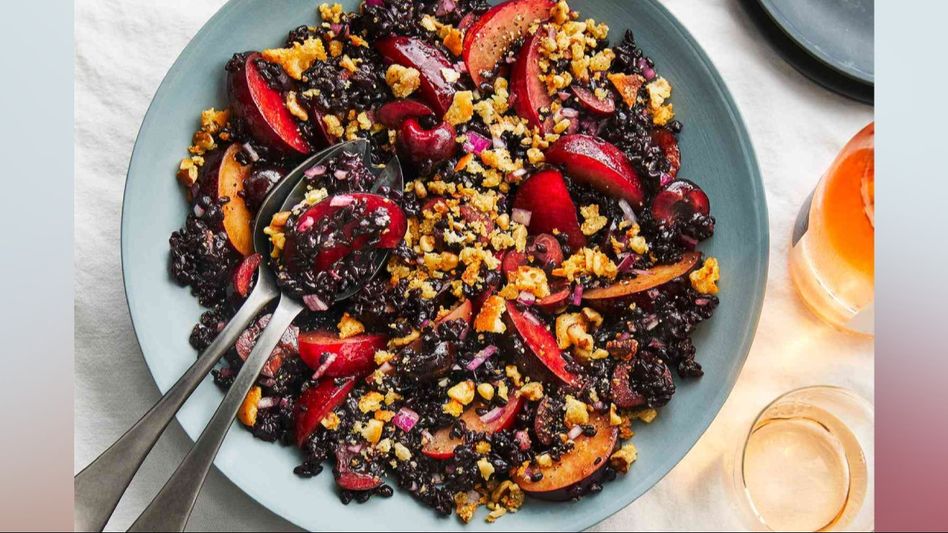Black Rice: A Nutrient-Packed and Healthy Option for Dinner
Black rice, also known as forbidden rice or purple rice, has been cultivated for centuries in Asia, particularly in countries like China and India.

Black rice, also known as forbidden rice or purple rice, has been cultivated for centuries in Asia, particularly in countries like China and India. Traditionally considered a rare and precious grain reserved for royalty and nobility, black rice has gained popularity in recent years due to its impressive nutritional profile and potential health benefits. This essay explores why black rice makes a healthy and nutritious option for dinner, highlighting its rich antioxidant content, fiber content, and potential role in promoting overall health.
Rich in Antioxidants:
One of the key reasons why black rice is considered a healthy option for dinner is its exceptionally high antioxidant content. The deep purple-black hue of black rice is attributed to its rich concentration of anthocyanins, a group of potent antioxidants found in certain fruits, vegetables, and grains. Anthocyanins have been linked to various health benefits, including reduced inflammation, improved heart health, and protection against chronic diseases such as cancer and diabetes. Including black rice in your dinner can help boost your antioxidant intake and support overall health and wellbeing.
High in Fiber:
Another health-promoting aspect of black rice is its high fiber content. Fiber is essential for digestive health, promoting regularity, preventing constipation, and supporting a healthy gut microbiome. Black rice contains both soluble and insoluble fiber, which helps slow down digestion, regulate blood sugar levels, and promote satiety, making it a satisfying and filling option for dinner. A diet rich in fiber has also been associated with a reduced risk of obesity, cardiovascular disease, and certain types of cancer. Incorporating black rice into your dinner routine can help increase your fiber intake and support digestive health.
Nutrient-Dense:
In addition to antioxidants and fiber, black rice is also a good source of various essential nutrients. It provides significant amounts of vitamins and minerals, including iron, manganese, zinc, and B vitamins such as niacin and thiamine. Iron is essential for transporting oxygen throughout the body and preventing anemia, while manganese plays a role in bone health, metabolism, and antioxidant defense. By including black rice in your dinner, you can boost your intake of these important nutrients and support overall health and vitality.
Versatile and Delicious:
Beyond its nutritional benefits, black rice is also versatile and delicious, making it a fantastic option for dinner. It has a slightly nutty flavor and a chewy texture, similar to brown rice, but with a more robust taste. Black rice can be cooked and served as a side dish, added to salads, soups, stir-fries, or used as a base for grain bowls and pilafs. Its striking color adds visual appeal to any meal, making it an excellent choice for entertaining or elevating everyday dining experiences.
Conclusion:
Black rice is a nutrient-packed and healthy option for dinner, offering a range of potential health benefits. With its rich antioxidant content, high fiber content, and abundance of essential nutrients, black rice can support overall health and wellbeing. Whether served as a side dish or incorporated into main courses, black rice adds both nutritional value and culinary excitement to meals. By including black rice in your dinner routine, you can nourish your body and delight your taste buds simultaneously.
Copyright©2026 Living Media India Limited. For reprint rights: Syndications Today









